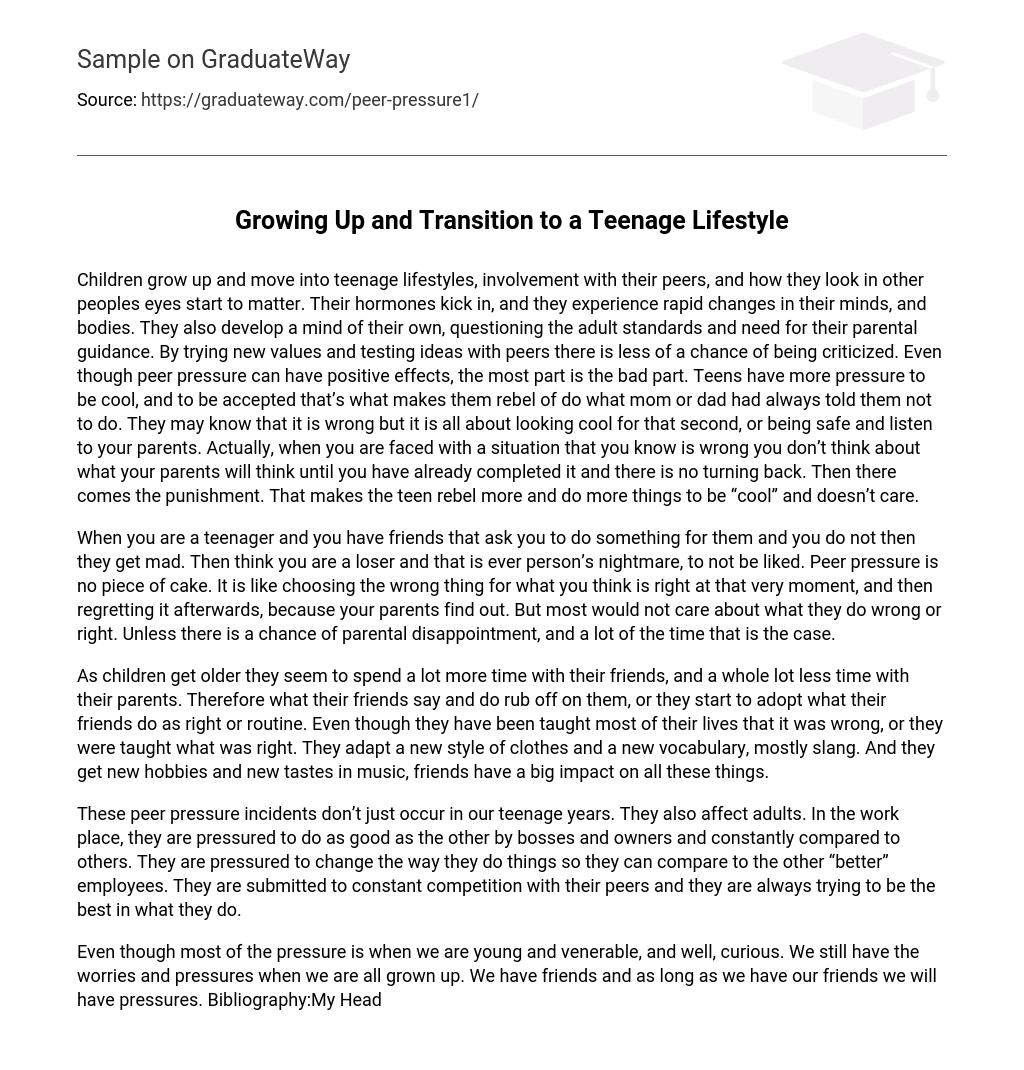During the transition into adolescence, teenagers shift their focus to their peers and how others perceive them. Both physical and mental changes occur due to hormones, as they also develop independent thoughts and begin questioning adult guidance and values. Exploring new ideas with peers helps them avoid criticism but giving in to peer pressure often leads to negative outcomes. Teenagers feel compelled to conform for acceptance, causing them to defy parental instructions. Although they may recognize certain actions are wrong, the desire to appear cool in the moment outweighs consideration for parental judgment. Only after engaging in these actions do they think about potential consequences and face punishment, triggering further rebellion as prioritizing being “cool” becomes more important than concern for what comes next.
Navigating peer pressure as a teenager can be challenging, with the fear of rejection and the potential for anger and diminished self-esteem if one refuses to comply with friends’ demands. Often, decisions made under peer pressure may initially seem favorable but are later regretted when parents discover them. However, teenagers often prioritize avoiding disappointing their parents over considering the morality of their actions, which is a frequent occurrence.
As children mature, their socializing with friends becomes more extensive, while their interaction with parents diminishes. Consequently, they become susceptible to the influence of their peers and start adopting their behaviors as typical. Despite being instructed from an early age about morality, children may embrace a distinct fashion sense and incorporate slang vocabulary acquired from their friends. Moreover, they develop fresh interests and musical preferences that are heavily shaped by their friendships.
Peer pressure incidents can impact not only teenagers but also adults. In the workplace, adults face pressure from their bosses and owners to perform as well as their peers. They are often compared to others and compelled to alter their approach to match the “superior” employees. This results in a continuous competition with their colleagues, as they strive to excel in their respective fields.
Although the majority of pressure is experienced during our youth when we are vulnerable, curious, and well, young, we still encounter worries and pressures as adults. One constant source of pressure is our friendships; as long as we have friends, we will inevitably face pressures. Bibliography: My Head.





